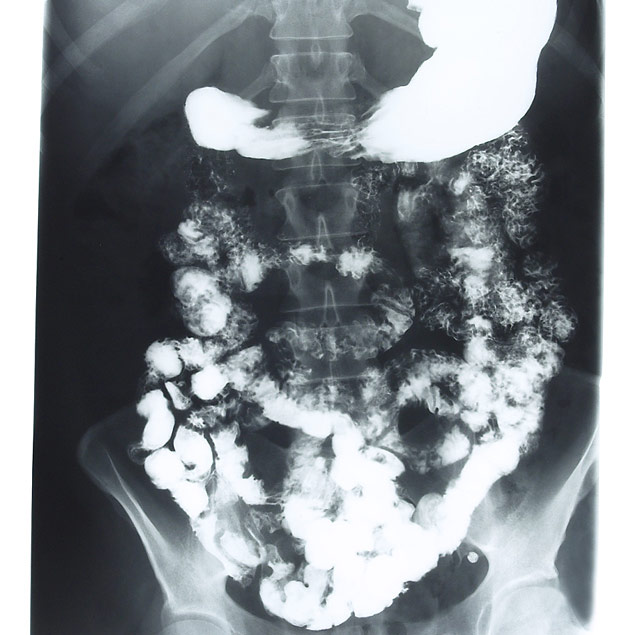
THURSDAY, March 18 (HealthDay News) — Treatment with a specific type of omega-3 fatty acid can shrink the number and size of precancerous polyps in people at high genetic risk of developing bowel cancer, British researchers say.
The study authors reported that the new treatment appears to work as well as a drug called celecoxib (Celebrex), which is prescribed for patients with bowel polyps linked to their genetic risk, but it doesn’t cause heart-related side effects.
The study, published online March 18 in the journal Gut, examined 55 patients with a high genetic risk of developing precancerous polyps in the bowel. The condition, known as familial adenomatous polyposis, puts people at much higher risk of developing bowel cancer and needing surgery.
The study participants were divided into two groups, with 28 receiving six months of treatment with daily 2-gram doses of a highly purified form of omega-3 polyunsaturated fatty acid, and the others receiving an inactive placebo.
Among those who took the placebo, the number of polyps grew by almost 10 percent, but it dropped by more than 12 percent among those who took the omega-3 capsules. The size of the polyps also increased among those in the placebo group, but decreased among those who took omega-3.
According to the researchers from St. James’s University Hospital in Leeds, U.K., omega-3 polyunsaturated fatty acids are safe and have also been shown to be beneficial for cardiovascular health, so this treatment may be a particularly good choice for those at risk of both bowel cancer and heart disease.
More information
The U.S. National Library of Medicine has more on familial adenomatous polyposis.

